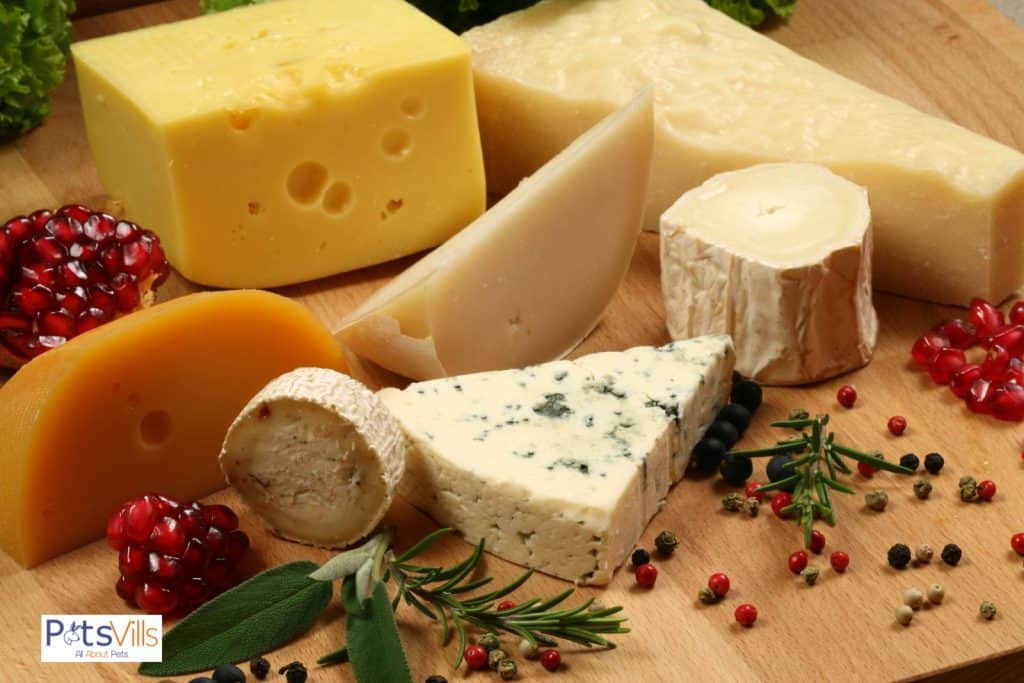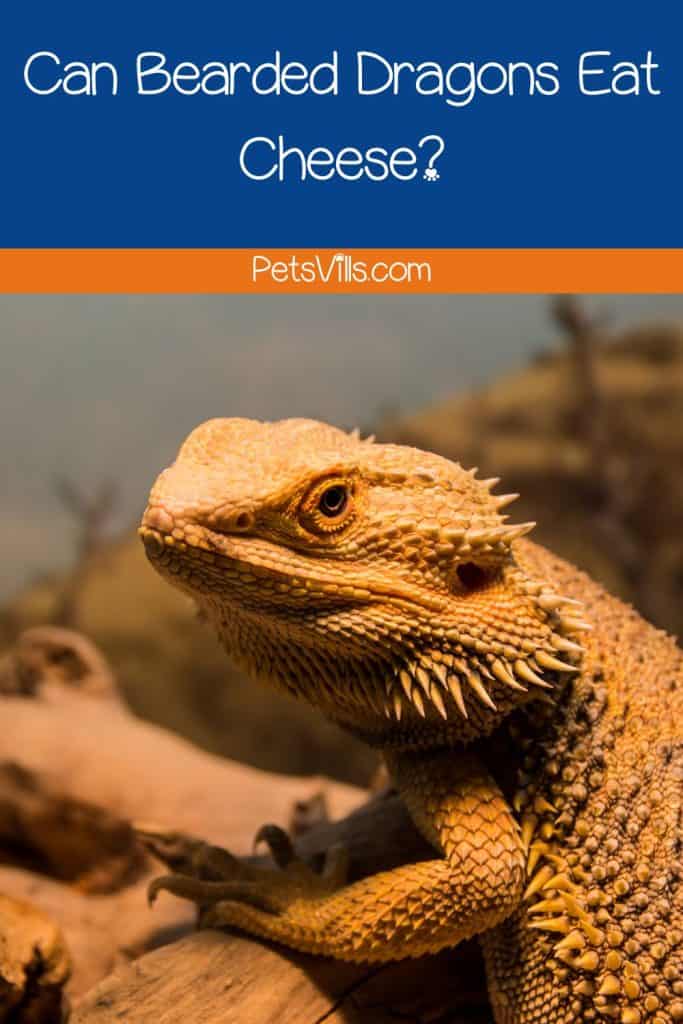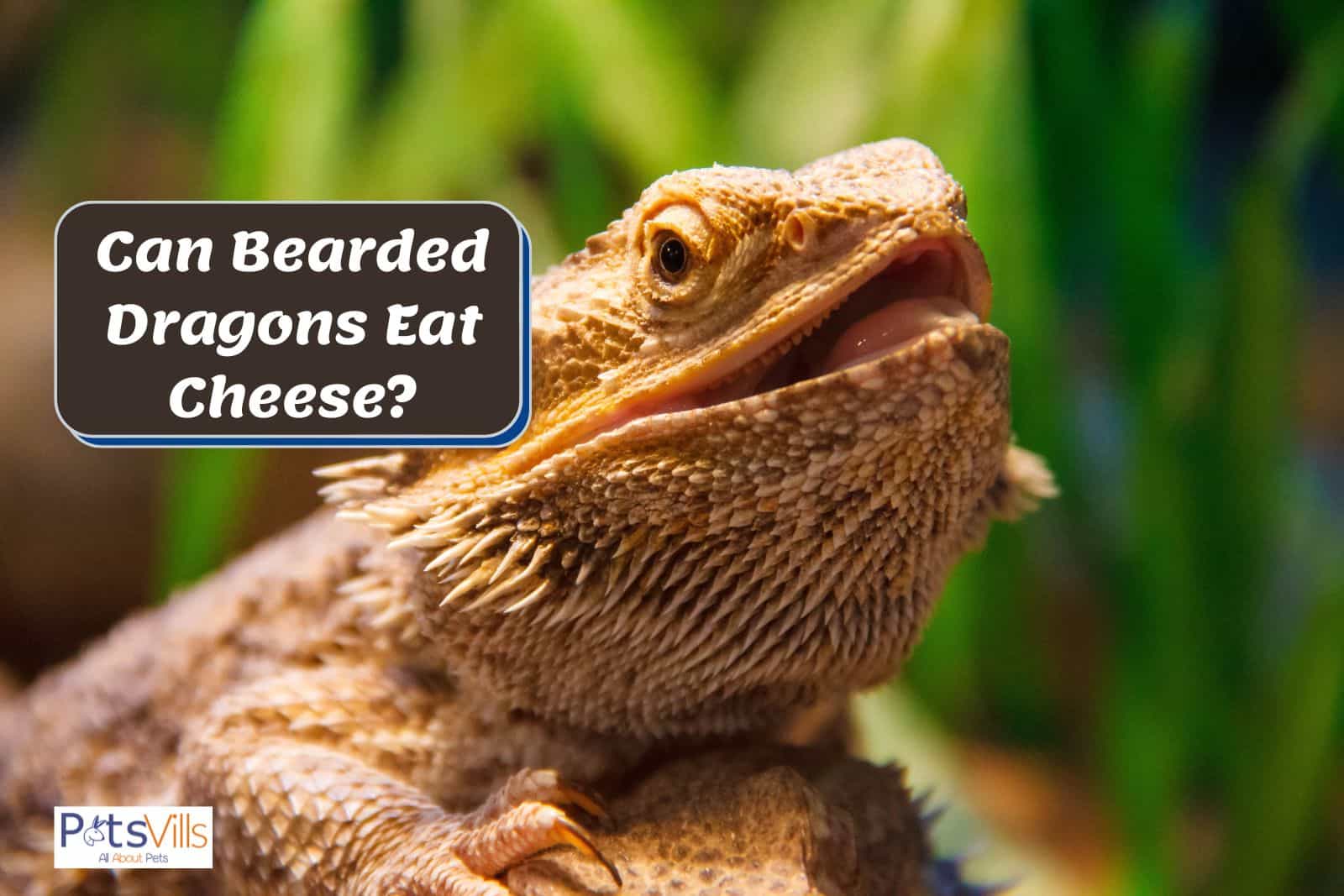Can bearded dragons eat cheese?
Cheese is high in fat and cholesterol and can cause digestive problems such as bloating and an impacted digestive tract in bearded dragons that can even be fatal. It’s indigestible, and the amount of fat and protein can cause heart and kidney problems.
So, if you’re thinking about feeding your beardie cheese, think again. There are plenty of other, healthier commercial bearded dragon foods they can eat instead (and that they’ll enjoy eating).
In this article, I will be taking you through everything you need to know about why you can’t feed your bearded dragon cheese, its effect on their body, and what you need to do if your dragon eats some.
Table of Contents
Key Takeaways:
- Bearded dragons cannot eat cheese
- Cheese is not a part of their natural diet and can actually be harmful to them
- Bearded dragons should only eat foods that are safe for them to eat and that will provide them with the nutrients they need
Is Cheese Safe for Bearded Dragons to Eat?
Did you know that bearded dragons cannot digest cheese because they are lactose intolerant?
This means that eating cheese can make bearded dragons sick, which is not a part of their natural diet.
Bearded dragons should only eat foods that are SAFE for them to eat and that will provide them with the nutrients they need (including protein, calcium, and vitamins).
Can Baby Bearded Dragons Eat Cheese?
Baby beardies definitely can’t eat cheese, and if you’re wondering whether baby bearded dragons drink milk, the answer is also a RESOUNDING NO.

The calcium content in cheese does not make it digestible, and unlike mammals, juvenile bearded dragons don’t need to drink milk in order to grow.
Be sure to use an appropriate calcium supplementation when feeding your baby bearded dragon to ensure they get enough of this essential nutrient.
Pro Tip: If you want to give your bearded dragon calcium, get a bearded dragon-safe powder and add it to their food for the best calcium absorption.
When they are babies and adults, your bearded dragon foods list should consist of safe snack foods like kiwi and watermelon.
Want to know why cheese and dairy products are so bad for them? Keep reading, and I’ll give you the details.
What Makes Cheese and Dairy Impossible for Bearded Dragons?
There are several reasons why beardies can’t eat cheese or dairy products. I’ve broken it down for you to help build a deeper understanding of why it can be DANGEROUS for them.
1. It’s Indigestible
The first reason is that bearded dragons can’t safely digest cheese because it’s indigestible. They are lactose intolerant, which means that their bodies can’t break down the lactose in cheese.
This can lead to bearded dragons becoming sick, and it’s just not worth the risk. Some of the issues it can cause are:
- Bloating
- Impaction & damaged digestive tract
- Diarrhea
- Digestive problems
2. There is too Much Fat
Another reason bearded dragons shouldn’t eat cheese is that it has too much fat. Dairy products are HIGH in saturated fats, leading to obesity and other health problems in bearded dragons. [1]
This is especially IMPORTANT to remember because beardies don’t run around nearly as much in captivity as they do in the wild, meaning they will burn less fat.
Some of the issues caused by eating too much fat are:
- Obesity
- Liver problems
- Heart disease
- High cholesterol
- Diabetes
- Arthritis
- Kidney disease
3. There is too Much Protein
Another problem with bearded dragons eating cheese is that there is too much protein in it. Cheese is high in protein, but so much so that it quickly becomes way too much for dragons.
This is because their bodies can’t process it properly, and it can lead to health problems such as:
- Kidney problems
- Liver problems
- Heart disease
- Cancer
Why is Calcium Important for Bearded Dragons?
Calcium is an important nutrient for bearded dragons, but it’s one that they can get from other sources. [2]
They don’t need to eat cheese to get calcium, and it’s better for them if they don’t care for the reasons I just explained above.
The reason beardies need calcium is for proper bone growth as well as healthy muscle and tissue. For female dragons, calcium is ESSENTIAL for reproductive functioning and strong egg shells.
Pro Tip: If your dragon doesn’t get enough calcium, it can lead to metabolic bone disease, which can be fatal.
What Should You Do if Your Bearded Dragon Eats Dairy?
If your bearded dragon eats dairy, it is best to take it to the vet IMMEDIATELY. They will likely need calcium, vitamin supplements, and fluids to help flush the dairy products out of their system (since it can’t be digested).
You can give them a warm bath and also feed them water with a syringe to help flush their system out and get them functioning smoothly. Even after doing this, you will still need to take them to the vet to ensure they are okay.
Pro Tip: If you have a baby bearded dragon, it is EXTREMELY important that you do not give them ANY dairy products as they are even more sensitive to it.
How Can You Make Sure Your Bearded Dragon Gets Enough Calcium?
You can make sure your bearded dragon gets enough calcium in a few different ways.
One way is to feed them dark, leafy greens as they are a GOOD SOURCE of calcium.
Pro Tip: Kale, collard greens, and mustard greens are all good options.
You can also give them a calcium supplement, which you can get from your vet or pet store. usually, you dust the feeder insects with some calcium powder for the BEST RESULTS.
Finally, ensure they have access to a UVB light, which will help them absorb calcium from their food.
READ MORE: Can Bearded Dragon Eat Eggs?
FAQs
What Dairy Alternatives Can Bearded Dragons Have?
Bearded dragons can have some dairy alternatives, but you must be CAREFUL as some of them can still be harmful.
Some good options are:
Coconut milk
Almond milk
Oat milk
Soy milk
Be sure to get unsweetened and unflavored versions of these milk to avoid any health problems.
What Not to Feed a Bearded Dragon?
There are a few other food items bearded dragons shouldn’t eat, which include:
Citrus fruits
Avocados
Junk food
Chocolate
Spicy food
Canned food
Raw meat
Make sure to check our list of what not to feed a bearded dragon.
Conclusion
So, can bearded dragons eat cheese? No, they cannot. Cheese is NOT a part of their NATURAL diet and can actually be harmful to them.
Bearded dragons should only eat foods that are safe for them and that will provide them with the nutrients they need. If your bearded dragon eats cheese, be sure to take it to the vet immediately.
I hope that this article has been helpful to you bearded dragon owners and given you a clearer understanding of why cheese and dairy products are such bad choices for beardies.

So, did you ever tried feeding cheese to your bearded dragon? Let us know in the comments section!
Resources:
1. Cheese: Types, health benefits, and risks [Internet]. www.medicalnewstoday.com. Available from: https://www.medicalnewstoday.com/articles/299147
2. Bearded Dragons – Feeding [Internet]. vca_corporate. 2017. Available from: https://vcahospitals.com/know-your-pet/bearded-dragons-feeding
Grigorina grew up surrounded by animals – dogs, cats, cows, goats, sheep, and horses and that has shaped her into what I am today – a crazy cat lady who always has a place for one more cat (or a dog). She has two female cats – Kitty and Roni, and two tomcats – Blacky and Shaggy, but she also feeds her neighbors’ cats when they come for a visit. I just can’t say no to them. Follow her on FACEBOOK AND INSTAGRAM
Read her latest articles HERE
Learn more about her


